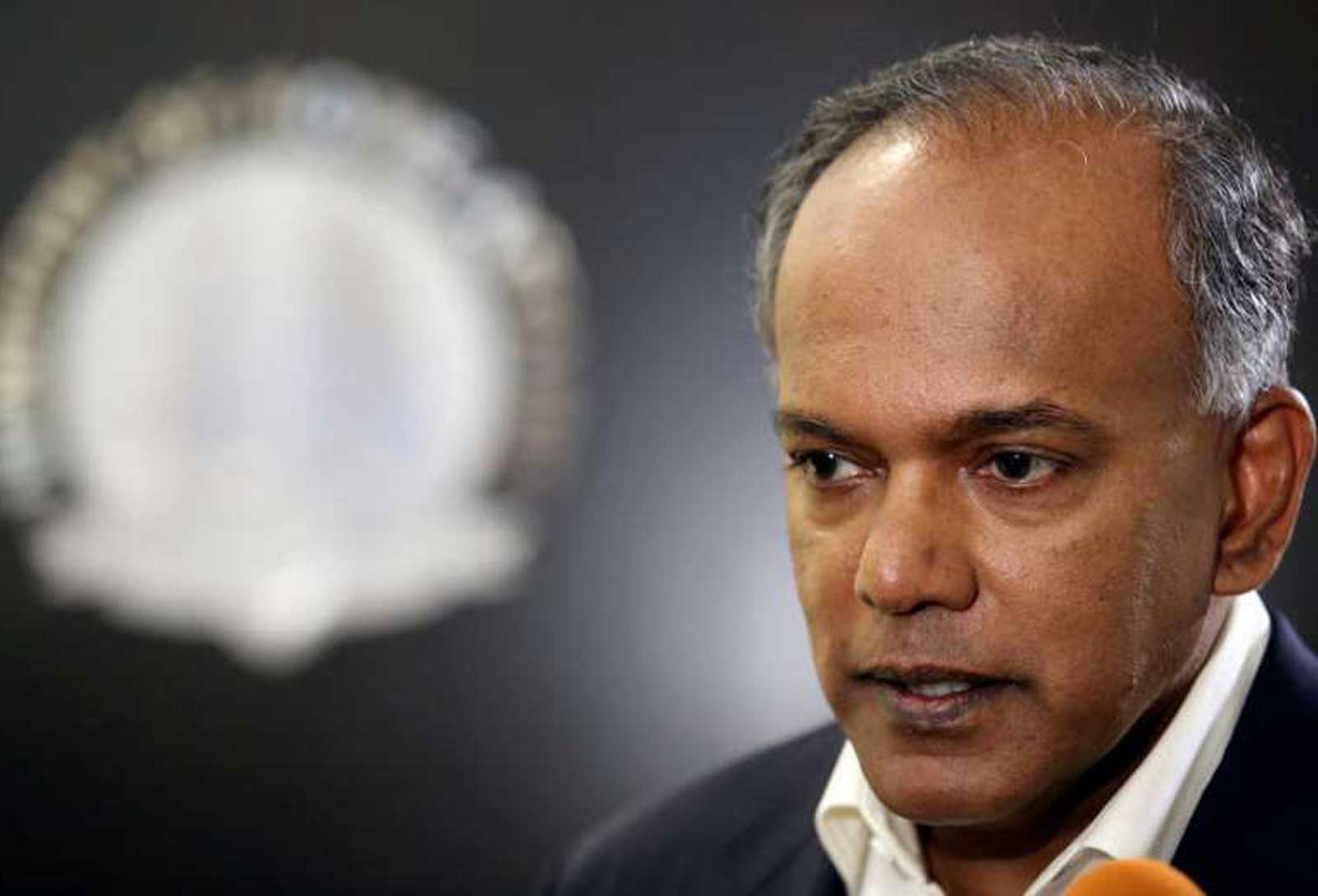Law Minister K. Shanmugam has rapped the British High Commission here for urging countries, including Singapore, to abolish the offence of scandalising the judiciary – and accused it of improperly trying to influence parliamentary debate.
He said it was “quite astonishing” that the British High Commission should try to give Singapore advice to follow Britain in abolishing its laws on scandalising the judiciary, and questioned if the commission was aware of the facts that led to Britain’s own decision to scrap them.
Singapore today is in a different position from Britain when it did so in 2013, he said.
“We are upholding standards that have gone down in Britain; standards which have gone down, and have led to a loss of respect and coarsening of society.”
The British High Commission told Reuters last Friday that Britain “will continue to urge Singapore and all countries which retain ‘Scandalising the Judiciary’ to abolish it”.
Mr Shanmugam said Britain had to abolish the offence three years ago because its judiciary had “lost the deferential respect it used to enjoy”, as evidenced by plentiful online material hurling abuse at the judges.
“The offence had limited symbolic value, as everyone was scandalising the court anyway. It was happening frequently, and was rarely prosecuted.”
And while the offence was also “in principle an infringement of freedom of expression” – a basic right under the European Convention on Human Rights – the key reason for abolishing it was that the court’s standing was already damaged in the public’s view, said Mr Shanmugam.
Such damaged reputation has affected the British judiciary and its work, said the minister, quoting from a 2014 survey of all serving and salaried judges there.
Nearly two in three had said members of the judiciary there were less respected by society compared to a decade ago, and more than half felt the way they were portrayed in the media, and public misunderstanding of the judiciary were factors driving this change. Falling judicial morale has also made it harder for Britain to recruit and retain judges, especially senior ones.
But Singapore does not have this problem as it tries to retain the prestige of the judiciary, keeps it well-resourced, protects it from being scandalised, and ensures its judges are paid properly, said Mr Shanmugam.
“We are in a healthy, good and enviable position, and we are not about to short-change our judiciary,” he said. “We are not struggling, or swimming against the tide of public opinion, as Britain was.”
He added: “Did the British High Commissioner know these facts when the advice was offered? If the High Commissioner knew the facts, then that does not speak well of them because we are not in the position Britain found itself in.”
Mr Shanmugam said that when Singapore’s Foreign Ministry asked why the British High Commission made the remarks, High Commissioner Scott Wightman said it was a reply by his press officer to Reuters’ query, and was not specific to Singapore.
Said Mr Shanmugam: “With the deepest respect to the High Commissioner, one can only say there is considerable disingenuity in that answer. If you want to intervene and make a comment, then at least have the courage of your conviction and not beat a hasty retreat at the first question.” He added: “Did the British High Commission see fit to make such comments to the Australians? To the New Zealanders? To the Irish? They also criminalise scandalising the court.”
When contacted, the British High Commission declined further comment.

This article was first published on Aug 16, 2016.
Get a copy of The Straits Times or go to straitstimes.com for more stories.






